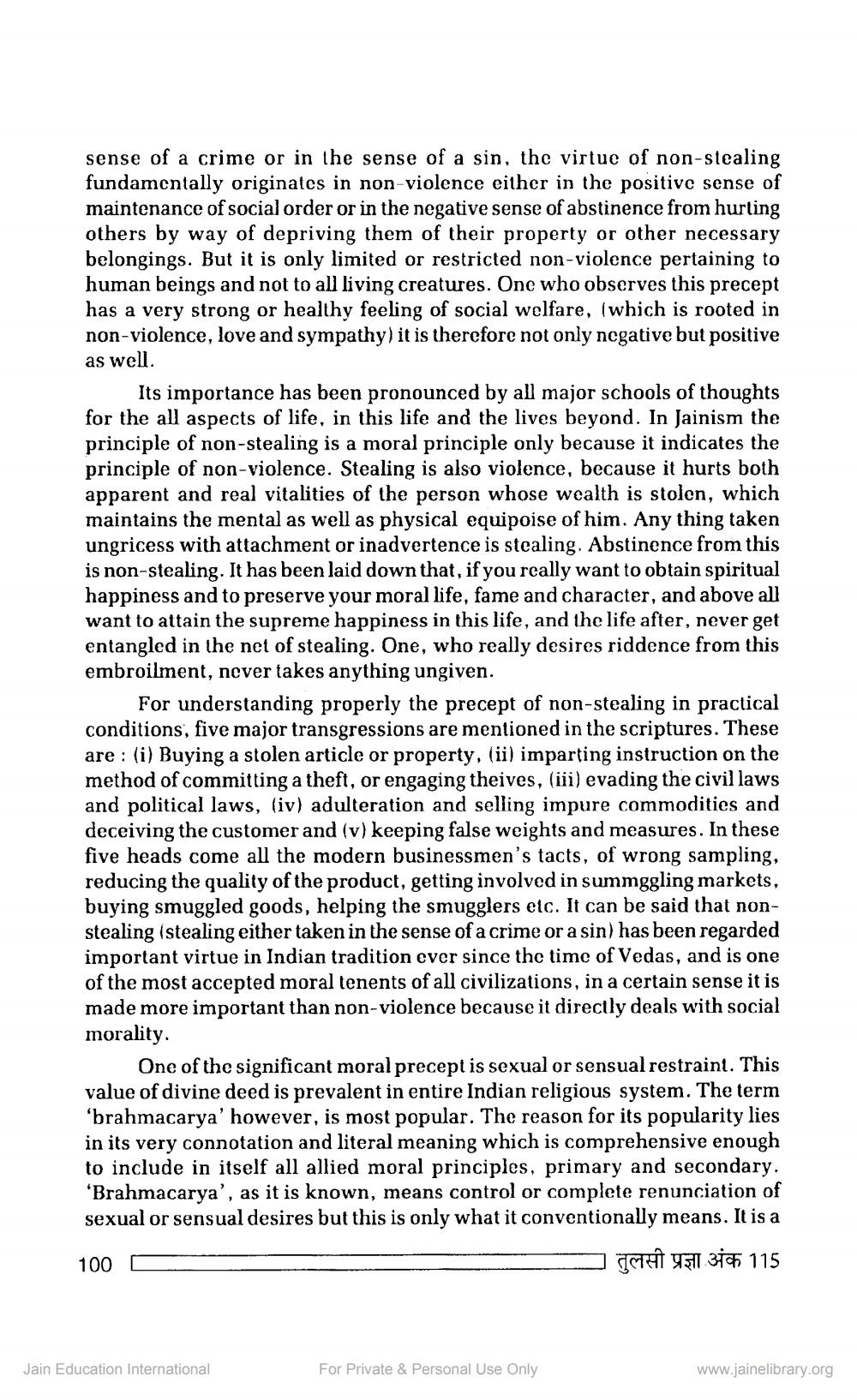________________
sense of a crime or in the sense of a sin, the virtue of non-stealing fundamentally originates in non-violence either in the positive sense of maintenance of social order or in the negative sense of abstinence from hurting others by way of depriving them of their property or other necessary belongings. But it is only limited or restricted non-violence pertaining to human beings and not to all living creatures. One who observes this precept has a very strong or healthy feeling of social welfare, (which is rooted in non-violence, love and sympathy) it is therefore not only negative but positive as well.
Its importance has been pronounced by all major schools of thoughts for the all aspects of life, in this life and the lives beyond. In Jainism the principle of non-stealing is a moral principle only because it indicates the principle of non-violence. Stealing is also violence, because it hurts both apparent and real vitalities of the person whose wealth is stolen, which maintains the mental as well as physical equipoise of him. Any thing taken ungricess with attachment or inadvertence is stealing. Abstinence from this is non-stealing. It has been laid down that, if you really want to obtain spiritual happiness and to preserve your moral life, fame and character, and above all want to attain the supreme happiness in this life, and the life after, never get entangled in the net of stealing. One, who really desires riddence from this embroilment, never takes anything ungiven.
For understanding properly the precept of non-stealing in practical conditions, five major transgressions are mentioned in the scriptures. These are: (i) Buying a stolen article or property, (ii) imparting instruction on the method of committing a theft, or engaging theives, (iii) evading the civil laws and political laws, (iv) adulteration and selling impure commodities and deceiving the customer and (v) keeping false weights and measures. In these five heads come all the modern businessmen's tacts, of wrong sampling, reducing the quality of the product, getting involved in summggling markets, buying smuggled goods, helping the smugglers etc. It can be said that nonstealing (stealing either taken in the sense of a crime or a sin) has been regarded important virtue in Indian tradition ever since the time of Vedas, and is one of the most accepted moral tenents of all civilizations, in a certain sense it is made more important than non-violence because it directly deals with social morality.
One of the significant moral precept is sexual or sensual restraint. This value of divine deed is prevalent in entire Indian religious system. The term 'brahmacarya' however, is most popular. The reason for its popularity lies in its very connotation and literal meaning which is comprehensive enough to include in itself all allied moral principles, primary and secondary. 'Brahmacarya', as it is known, means control or complete renunciation of sexual or sensual desires but this is only what it conventionally means. It is a
तुलसी प्रज्ञा अंक 115
100
Jain Education International
For Private & Personal Use Only
www.jainelibrary.org




